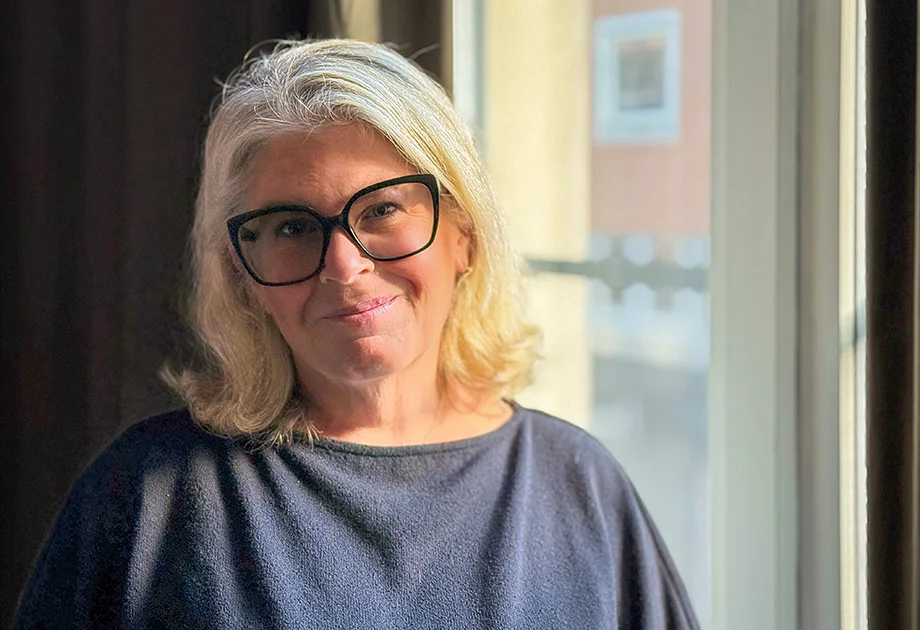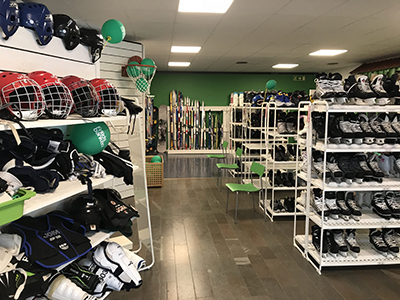The idea that got Sweden moving

From a small premises in Deje to a movement that has spread throughout Sweden. Today, Fritidsbanken lends out millions of sports and leisure items – and has become a natural part of life for many. Now, founder Carina Haak, deacon and passionate advocate, is receiving KTH Great Prize.
“It's incredible, I feel so grateful and euphoric. The award is confirmation that this has become something really big,” she says.
Fritidsbanken is like a library for sports and outdoor equipment. They accept used items and lend them out free of charge to anyone who wants and needs them.
“There are no late fees, and if something breaks, the staff say, ‘It's great that you used it until it wore out’.”
The idea came to Carina Haak over ten years ago when, as a deacon, she met many single parents who kept their children home from school outdoor activities because they couldn't afford to buy skates, skis or sledges.
When she discovered that there were no places that lent out equipment, she decided to start her own organisation. She received support from the municipality and an integration project, and in early 2013, the first Fritidsbanken was launched in premises in Deje, Forshaga municipality, in Värmland.
A form of democratisation
She is keen to point out that the lending service is aimed at all groups, both children and adults.

“Equipment should not be a barrier to activity, but an opportunity. But it's difficult for people who don't have access or don't want to spend a lot of money on expensive equipment that may only be used a few times. In that sense, the Fritidsbanken's activities are a form of democratization.”
At the same time, there is an ambition to help reduce the climate footprint and improve public health.
“All our gadgets are reused and help to reduce emissions and change people's attitudes to consumption. Fritidsbanken is based on desire and the joy of movement, and we hope to be able to help counteract increased sedentary lifestyles.”
Immediately after its launch, Fritidsbanken received positive media attention. Local authorities and many interested parties got in touch and came on study visits. More and more people opened local branches, and today Fritidsbanken has over 130 locations across the country, from Kiruna to Trelleborg, with several new ones in the start-up phase. Last year, a total of 1.8 million items were loaned out, and 100,000 used items were donated.
Social justice
Everything from skates, footballs and snowboards to tents, camping stoves, bicycles and canoes are available for loan. Equipment purchased for people with disabilities is also available for loan.
The people who work there are a mix of employees and volunteers, interns and those who are in work training.
“Many go on to find regular jobs in the labour market, and it's very rewarding to be part of that.”
Today, Carina Haak no longer has an operational role at Fritidsbanken. But she has not given up her commitment to social justice, equal rights for all, and opportunities for young people and children to enjoy leisure activities and exercise. She receives many requests and is planning to start travelling around and giving lectures on the issues close to her heart.
“I am passionate about equal rights for all and want to help more young people feel hope and optimism about the future – that they really dare to believe in their own ability to make a difference.”
Text: Christer Gummeson ( gummeson@kth.se )
